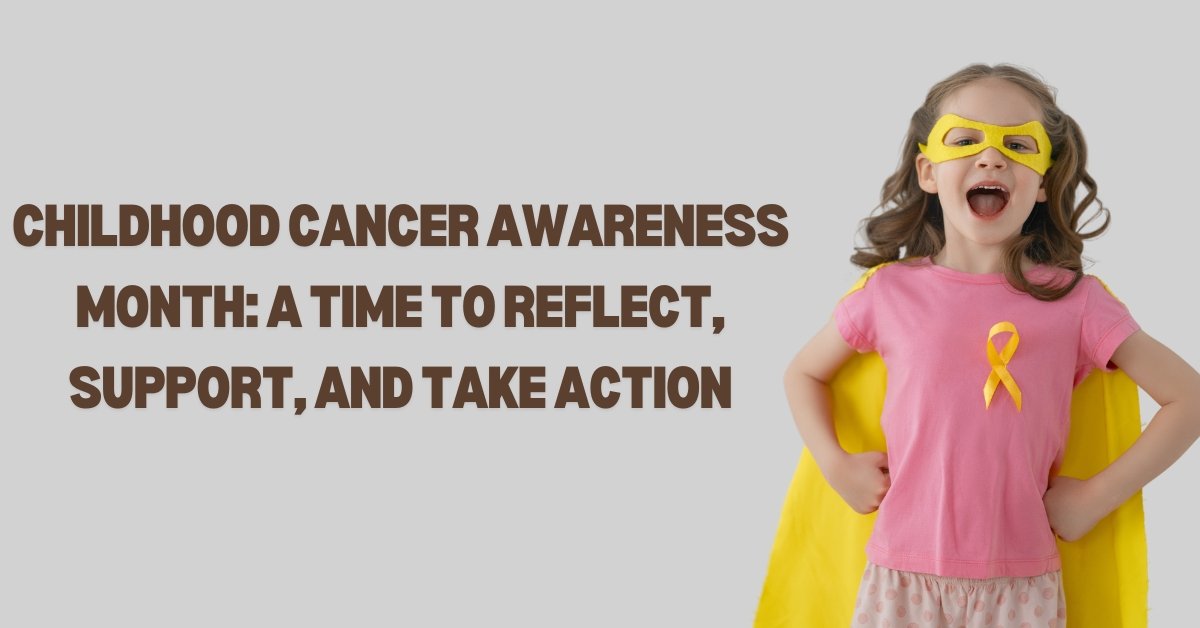
As September rolls around each year, it brings with it a time of reflection, hope, and action for those of us in the oncology community. This month is dedicated to Childhood Cancer Awareness—a cause that is both deeply personal and profoundly important to me as an oncologist. Childhood Cancer Awareness Month is not just a time to wear gold ribbons; it’s an opportunity to shine a spotlight on the unique challenges faced by young cancer patients and their families, to celebrate the victories we’ve achieved, and to acknowledge the work that still lies ahead.
Understanding Childhood Cancer
Childhood cancer is a broad term that encompasses a variety of cancers that occur in children under the age of 18. The most common types include leukemia, brain tumors, neuroblastoma, and lymphomas, among others. Unlike adult cancers, which are often linked to lifestyle or environmental factors, the causes of childhood cancers are largely unknown and can occur randomly without warning.
Despite being relatively rare compared to adult cancers, childhood cancer remains the leading cause of death by disease for children in many parts of the world. Each year, thousands of children and their families face the unimaginable reality of a cancer diagnosis, embarking on a journey that is both physically and emotionally taxing.
The Impact of a Childhood Cancer Diagnosis – Childhood Cancer Awareness Month
The impact of a cancer diagnosis on a child is profound. It interrupts the most formative years of their life, affecting their education, social development, and overall well-being. The treatment process—often involving surgery, chemotherapy, radiation, and extended hospital stays—can be grueling. Children may miss out on the joys of childhood, and their families are thrust into a world of uncertainty, fear, and financial strain.
However, it is not just the physical burden of the disease that we must address. The emotional and psychological toll on both the child and their family is significant. Parents often find themselves grappling with feelings of helplessness, while the child may struggle with the isolation and anxiety that can accompany long-term treatment. This is why comprehensive care, which includes psychological support, is crucial for these young patients.
Advances in Treatment and Hope for the Future
The good news is that we have made tremendous strides in the treatment of childhood cancers over the past few decades. Advances in research and treatment protocols have led to significant improvements in survival rates. For example, the survival rate for childhood leukemia has increased dramatically, with many children now living long, healthy lives post-treatment.
But while these advances are encouraging, they are not the end of the story. The treatments that save lives can also have long-term side effects, impacting the child’s health well into adulthood. This is why ongoing research is essential—not just to find cures, but to develop treatments that are less toxic and more targeted, minimizing the long-term impact on survivors.
How You Can Help
Raising awareness during Childhood Cancer Awareness Month is about more than just recognizing the existence of this disease—it’s about taking action. Here are a few ways you can make a difference:
1. Support Research: Consider donating to organizations that fund childhood cancer research. These funds are critical for developing new treatments and ultimately finding a cure.
2. Spread the Word: Use your voice to raise awareness. Whether through social media, community events, or personal conversations, spreading knowledge about childhood cancer helps bring attention to the cause.
3. Support Families: If you know a family affected by childhood cancer, offer your support. This could be as simple as lending an ear, helping with day-to-day tasks, or connecting them with resources.
4. Advocate for Change: Get involved in advocacy efforts that push for increased funding for childhood cancer research and better support for affected families. Your voice can help drive policy changes that make a difference.
A Message of Hope
As an oncologist, I have the privilege of witnessing the resilience and strength of young cancer patients and their families. While the journey is often long and difficult, the courage these children show is nothing short of inspiring. Childhood Cancer Awareness Month is a time to honor their bravery, remember those we have lost, and recommit ourselves to the fight against this devastating disease.
Together, we can work towards a future where no child has to face cancer and where every child who does can look forward to a full, healthy life. Let’s make September a month of action, hope, and progress.
Why More Young Adults Are Developing Colorectal, Pancreatic & Other GI Cancers …
By Dr. Saadvik Raghuram Y – Leading Oncologist in Hyderabad World Cancer …
Why Are So Many Young People Getting Cancer Today? Across the world, …
January is Cervical Cancer Awareness Month in India, and this article explains …
Cancer-Related Fatigue (CRF) is one of the most common—and most underestimated—symptoms experienced …
Every year, Aplastic Anemia Awareness Month shines a spotlight on a rare …

